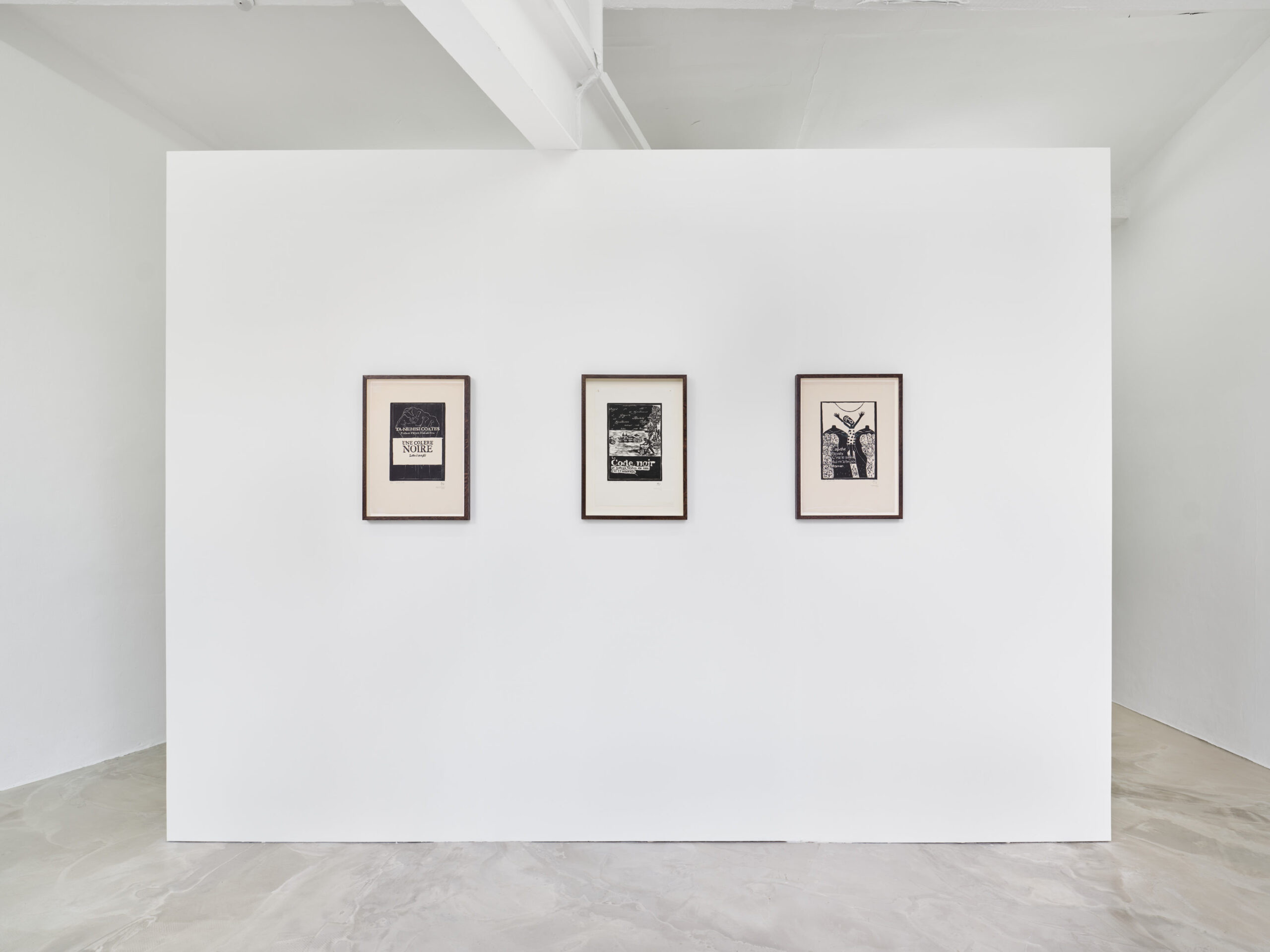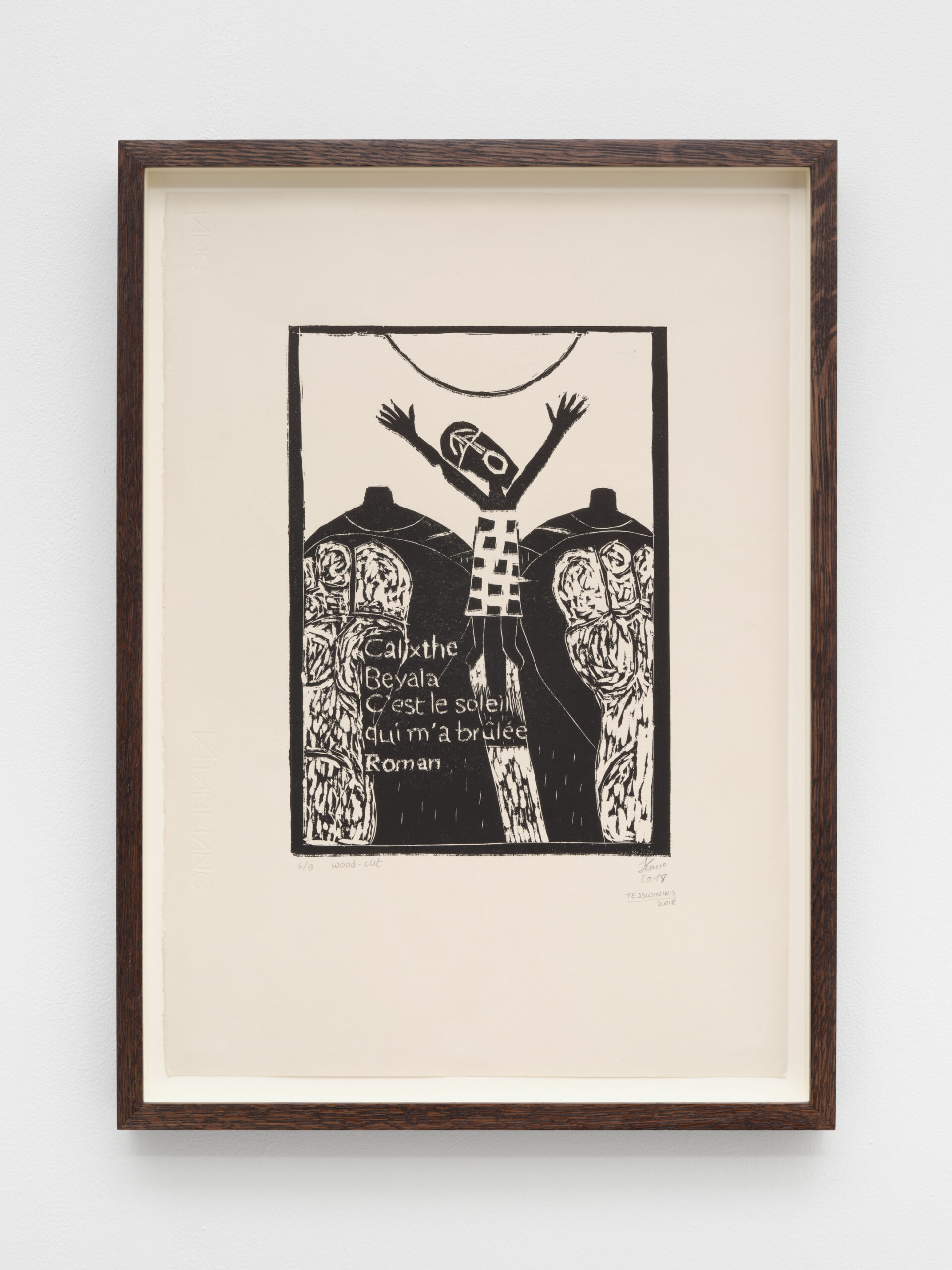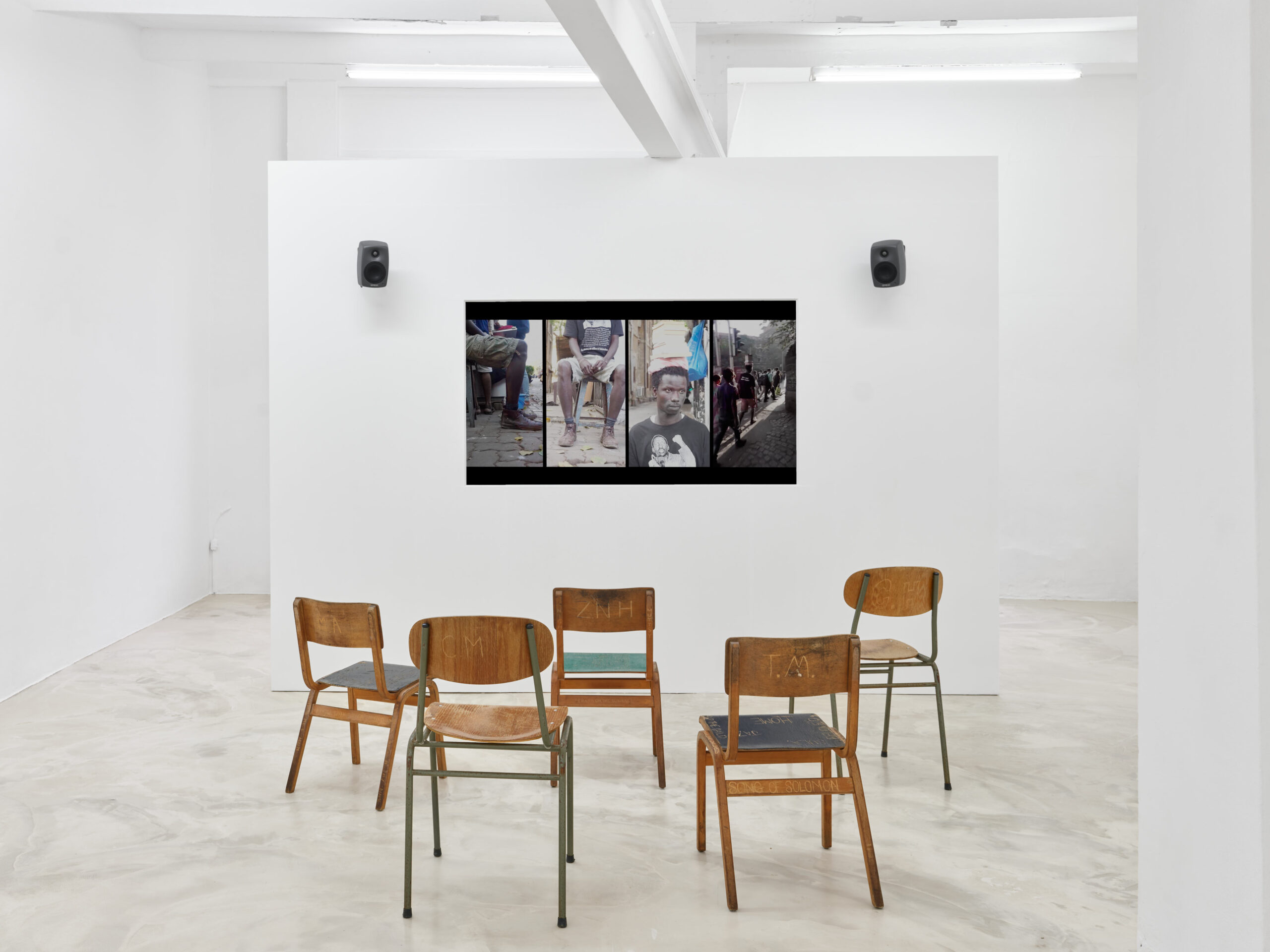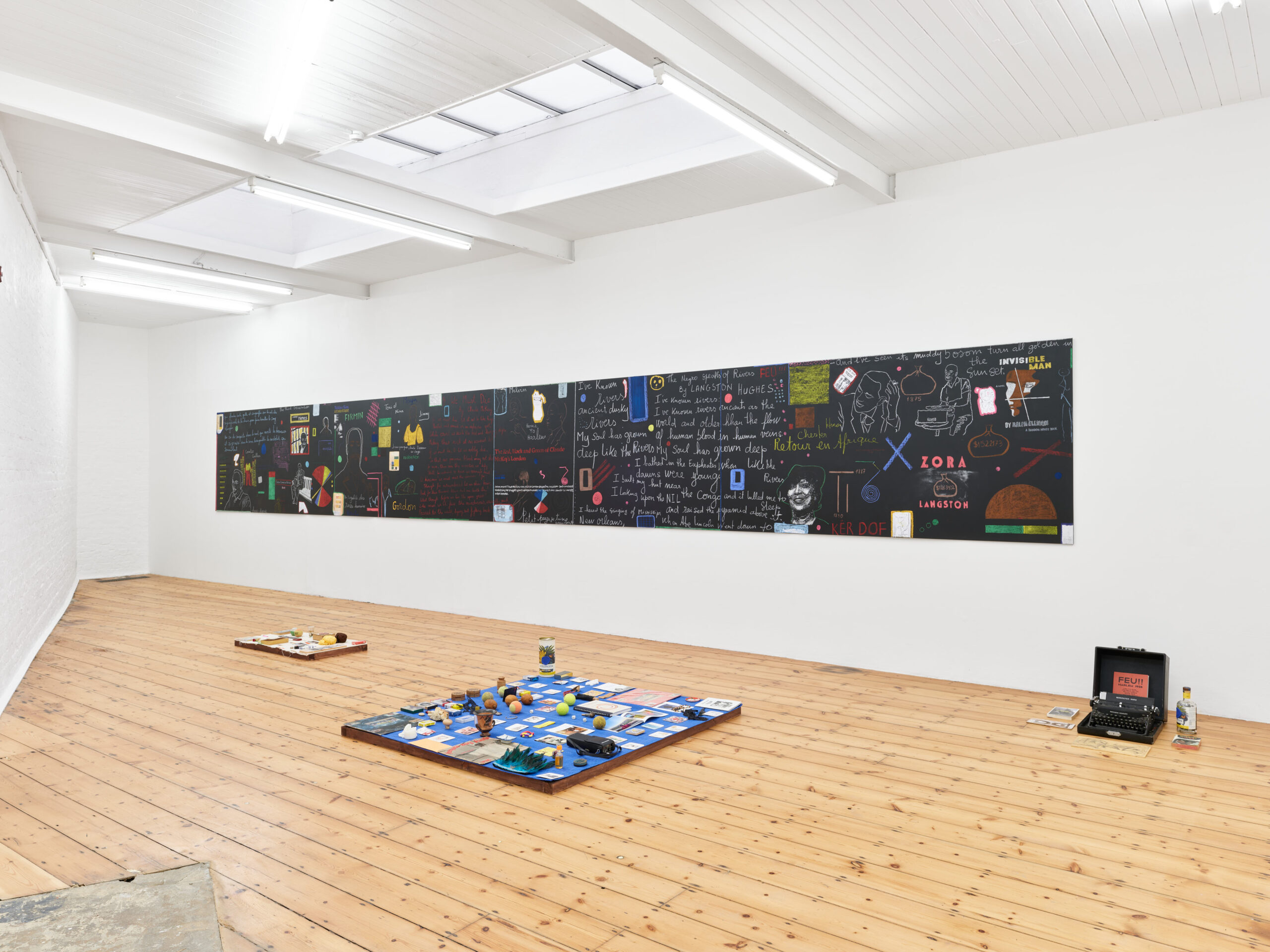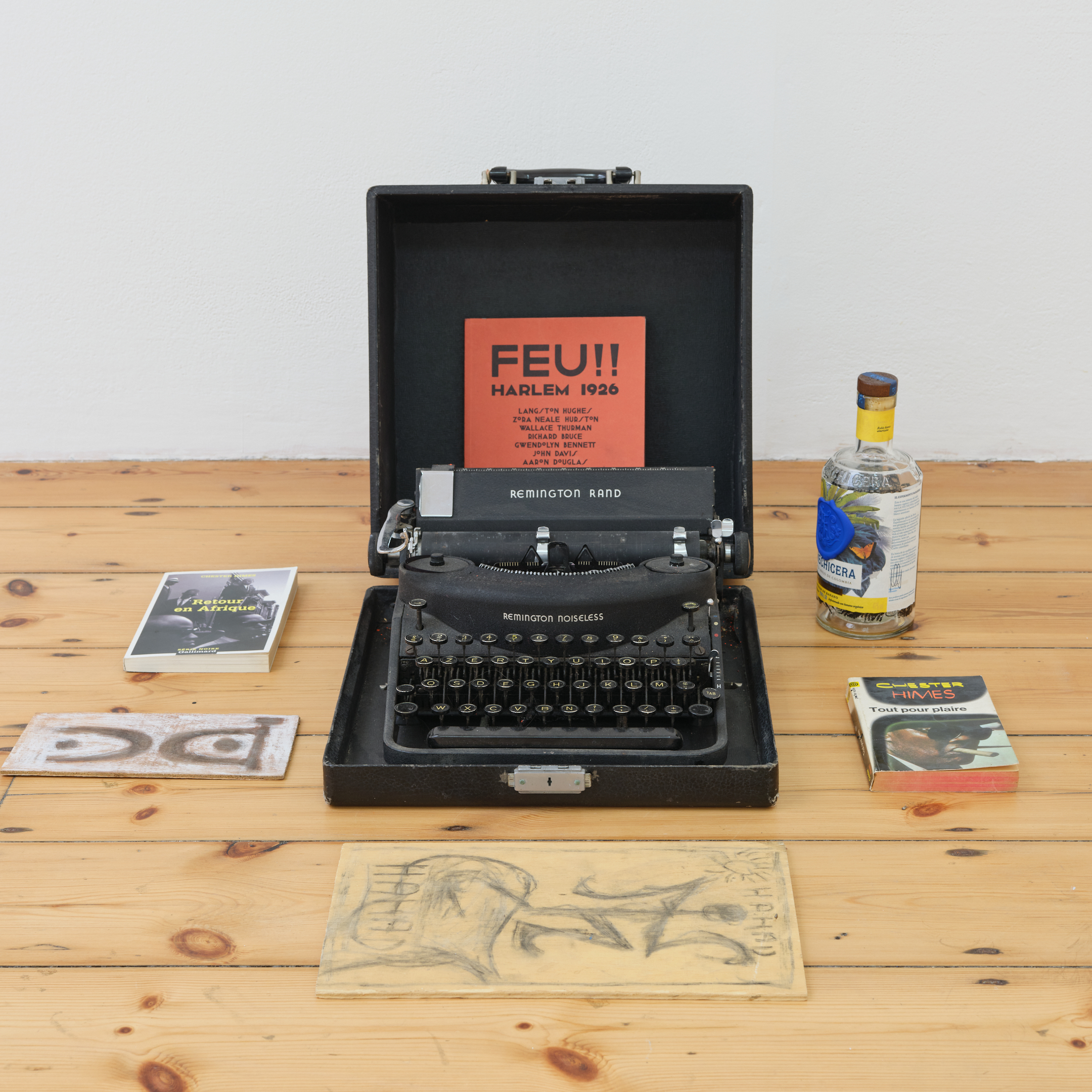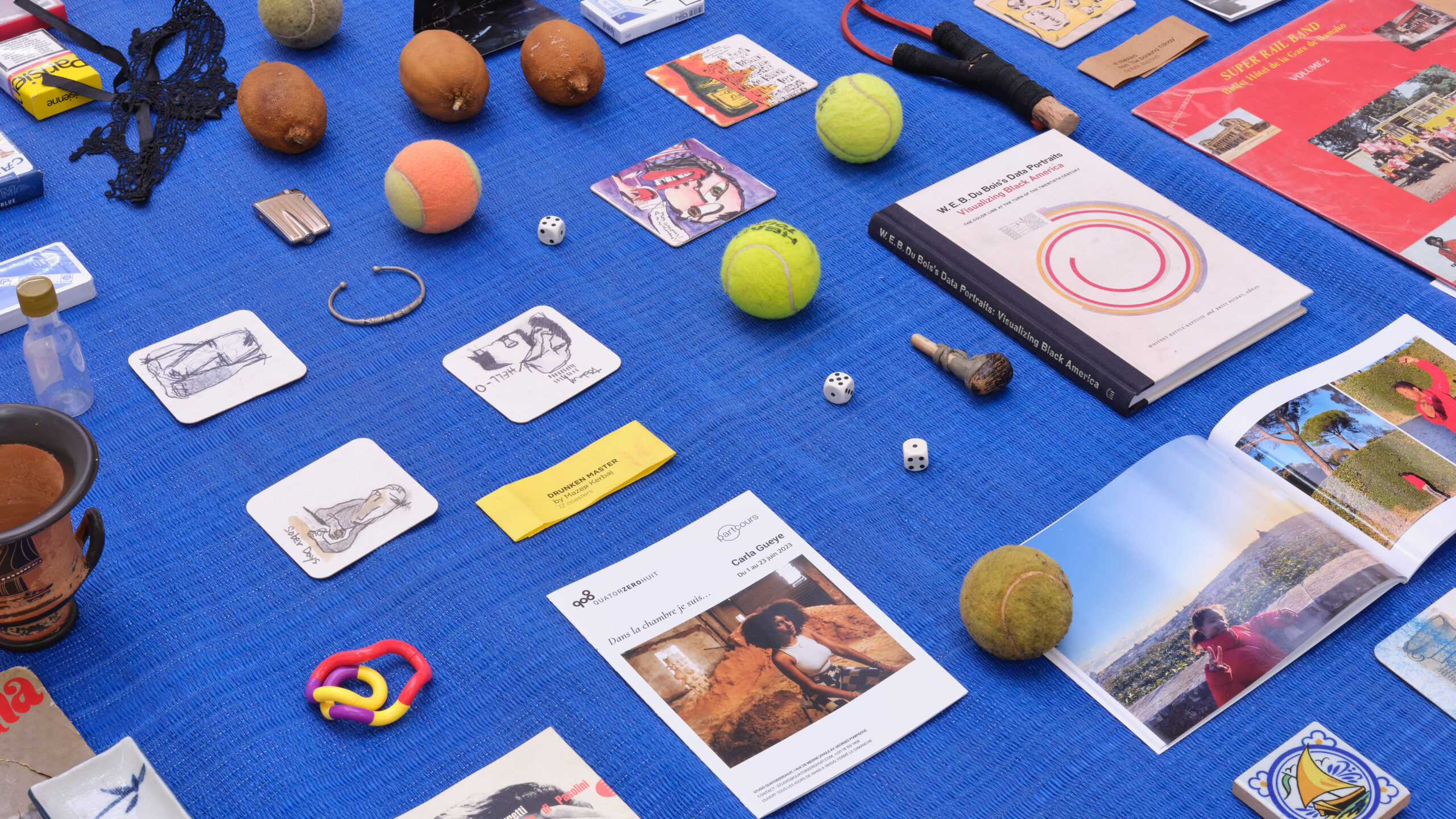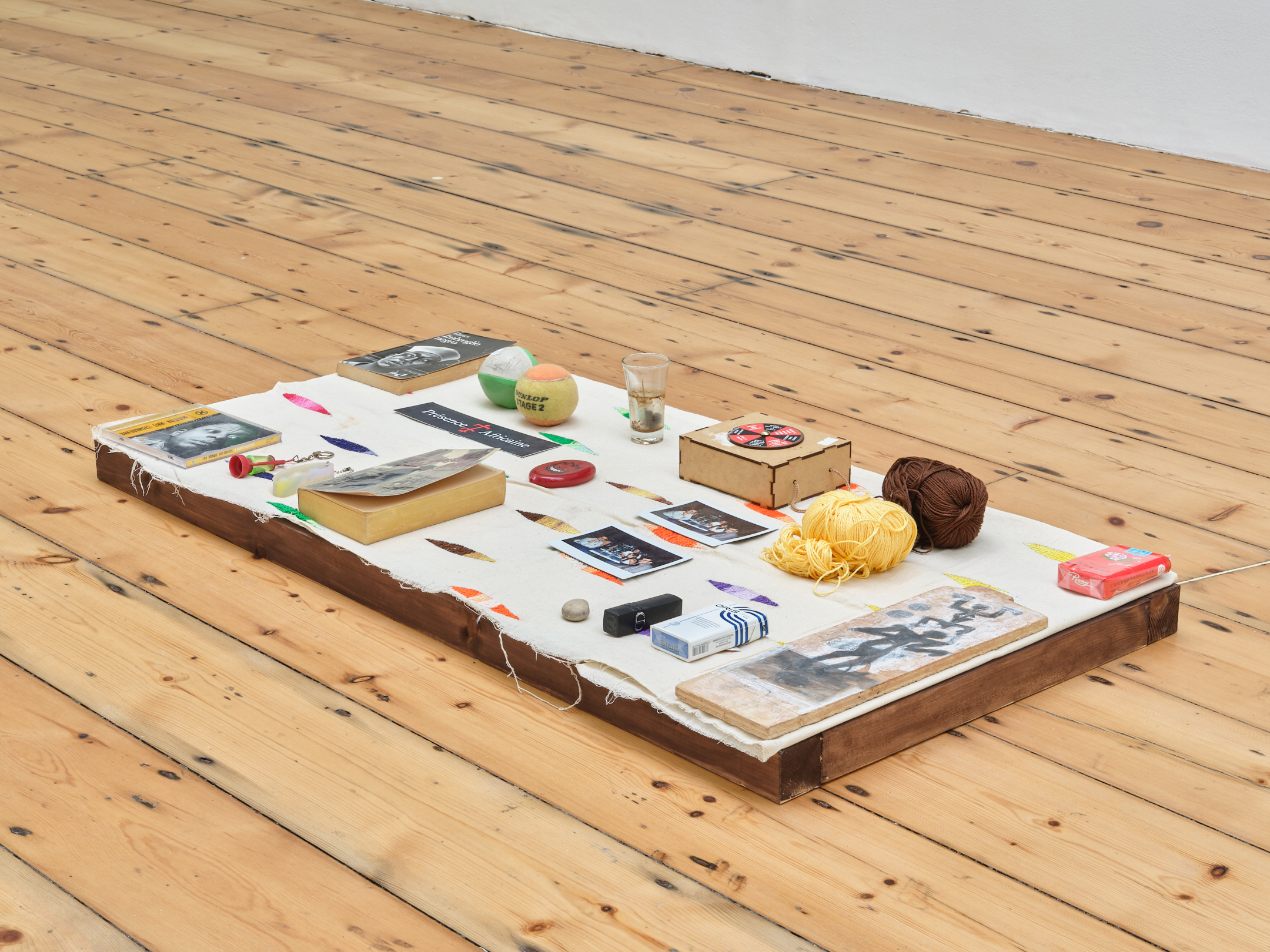Auto Italia presents Salesman of Revolt, the first solo exhibition in the UK by Senegalese-Mauritanian artist and film director Hamedine Kane. The exhibition brings the site-specific installation Trois Américains à Paris (2024) together with work from Kane’s series Salesman of Revolt (2018). This presentation foregrounds Kane’s ongoing research into often overlooked experiences of exile and forced migration, challenging dominant post-colonial understandings of borders and racialised identity.
Kane’s practice, spanning moving image, print, sculpture, textile and installation, constitutes an expanded visual art library that traces the lives, works and social connections of key revolutionary figures of African modernity. Informed by legacies of political activism in the artist’s family, as well as his training and employment as a librarian in Nouakchott, Mauritania, Kane’s work reflects on African and African-diasporic literature, the impact of colonialism and efforts in confronting structural racism. Kane’s projects examine and employ processes of collective production and knowledge distribution, often inviting international collaborators to co-produce artworks.
Salesman of Revolt, the series from which the exhibition takes its name, consists of a series of woodcut prints, created in collaboration with India-based artist Tejswini Narayan Sonawane, and a performance, the documentation of which was used to develop a nine-minute moving image work. The exhibition includes three prints from the series, all based on the front covers of influential publications and documents. Among those shown is the Code Noir, a decree passed by King Louis XIV of France in 1685 that defined the laws and conditions of slavery across the French colonial empire. Juxtaposed with this document are the covers of more recent texts: Cameroonian-French writer Calixthe Beyala’s novel C’est le soleil qui m’a brûlée (The Sun Hath Looked Upon Me, 1987) and American author and activist Ta-Nehisi Paul Coates’ autobiographical book Une colère noire: Lettre à mon fils (2016), originally published as Between The World And Me in 2015. With subjects spanning different contexts and eras, this selection from the wider series spotlights defining historical moments in the development of imperialist ideologies that permeate and influence the conditions of African and African diasporic communities to this day.
In Dakar, young street vendors carry such books on their heads and sell them in public spaces. Though some are illiterate, the booksellers praise the merits of these important poetic and revolutionary works, distributing decades of literary and intellectual heritage as a form of peaceful activism. In his moving image work, Kane follows this method of public display as a way to question formalised structures of knowledge dissemination and reinvigorate decades of Black literary and revolutionary tradition in an exhibition context. Shot in Mumbai during his artistic residency, the work investigates alternative means of communication to emanate political views and a sense of identity.
Kane’s most recent work, Trois Américains à Paris, comprises a large-scale, site-specific mural and a sculptural floor piece. The title references the lives and works of Richard Wright, Chester Himes and James Baldwin, writers from the US who lived in exile in Europe from around the 1940s, and to whom Kane returns frequently in his work. These African American authors are among some of the most influential writers of the twentieth century and are particularly associated with the social protest novel. In Trois Américains à Paris, Kane highlights the influence these authors’ works had on some of the twentieth century’s major political movements, such as the civil rights and gay liberation movement, and their role in highlighting human rights issues in the United States and Western Europe.
In a new blackboard mural developed onsite at Auto Italia, Kane makes reference to Himes, Baldwin and Wright alongside the work of authors and poets who passed through, wrote about or spent time in London. Trois Américains à Paris includes images, portraits and quotes from key figures such as Langston Hughes, Zora Neale Hurston, W. E. B. Du Bois, Maya Angelou and Claude McKay. Like all Kane’s work, the mural is an exercise in transmitting and reactivating the work of such authors as part of an ongoing lineage, stemming from the Pan-African Congress that took place for the first time in London in 1900 and later in 1923. The Congress had a significant role in standing against colonialism and racial discrimination, and addressing political and economic issues created by imperialism in Africa and parts of South America.
An attendant sculptural assemblage comprises items gathered by Kane during his travels: cigarette packets, bottles of rum shared with friends, a collection of publications and Himes’ original typewriter from the 1930s, among other personally significant objects. Arranged on a Mauritanian cloth traditionally used as a space for sitting and socialising, the artwork emerges from Kane’s own experience of nomadic life and exile, and the process of grounding oneself through exchange.
Salesman of Revolt is commissioned and produced by Auto Italia, with generous support from Arts Council England, Flanders State of the Art, Fluxus Art Projects and Selebe Yoon, Dakar.
Auto Italia’s commissions are made possible by our Exhibition Circle and Member supporters.
Hamedine Kane (b. 1983) is a Senegalese-Mauritanian artist and director, living and working between Brussels, Paris and Dakar. His work focuses on exile, wandering, inheritance and the awareness that stems from the experiences of political independence in Senegal and other neighbouring countries in Africa. His research looks into African, African American and Afro-diasporic literature which historically influenced political, social and environmental activism. Kane is the co-founder of The School of Mutants, a research project initiated with Stéphane Verlet-Bottero. Kane’s recent exhibitions include Kaunas Biennale, Lithuania (2023), Dak’art Biennale (2022), Berlin Biennale (2022), Les Rencontres de Bamako (2022), Momenta Biennial, Montreal (2021), Taipei Biennial (2020) and Biennale de Lubumbashi, DRC (2019), Casablanca Biennial, Morocco (2019) and Documenta 14: Every Time A Ear Di Soun, Berlin, Germany (2017). His films were presented and nominated for prizes at film festivals such as the IDFA, Amsterdam (2020), OpenCity Film, London (2021), Biografilm Festival, Bologna (2022) and RIDM, Montréal (2020), among others. Kane was nominated for Norval Sovereign African Art Prize 2023 and was awarded a residency at the Art Explora, Cité internationale des arts, Paris in 2021 and the Villa Médicis, Rome in 2024.
Salesman of Revolt was curated by Milda Batakyte, Curator: Exhibitions & Events at Auto Italia. With special thanks to Melody Chan, Yiqing Chen, Katie Della-Valle, Sid DiPasca, Stella Douglass, Jay Drinkall, Suzanne Elven, Charlie Fegan, Oona Hope, Jennifer Houdrouge and the Selebe Yoon team, Beatrice Johansson, Tiffany Liang, Andy Moss and the Spike Island team, Justas Pakštys, Katharine Roberts, Katherine Sung, and Sim Urhan.




